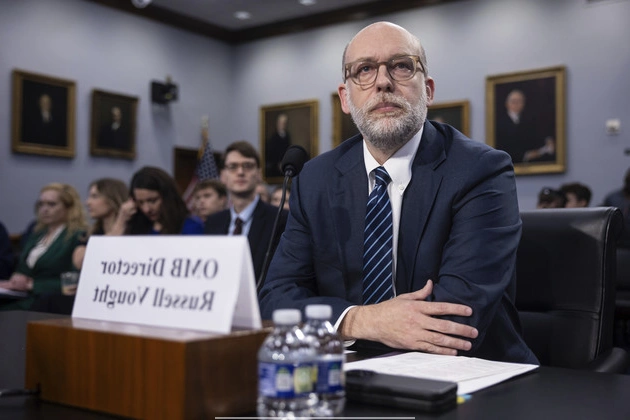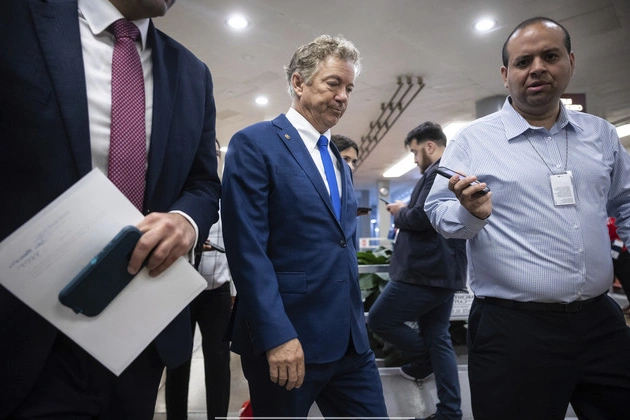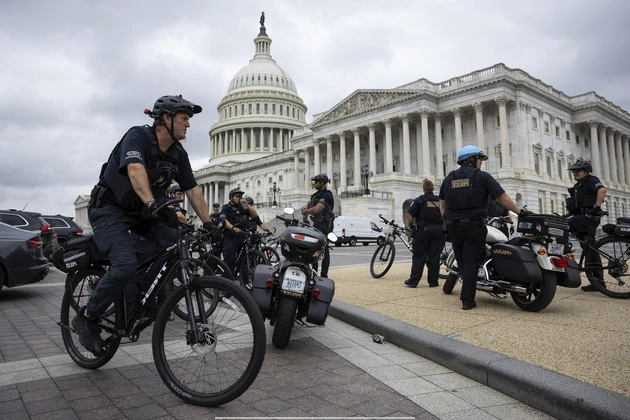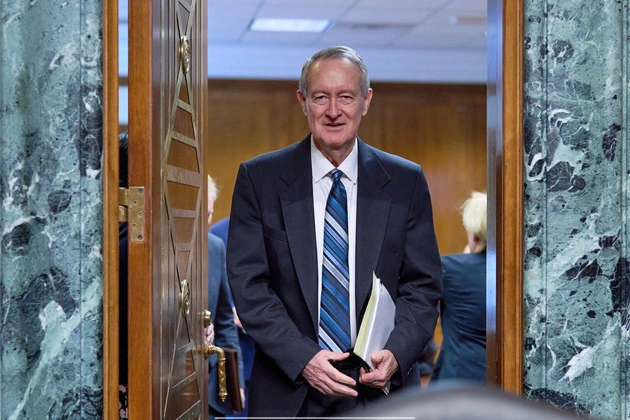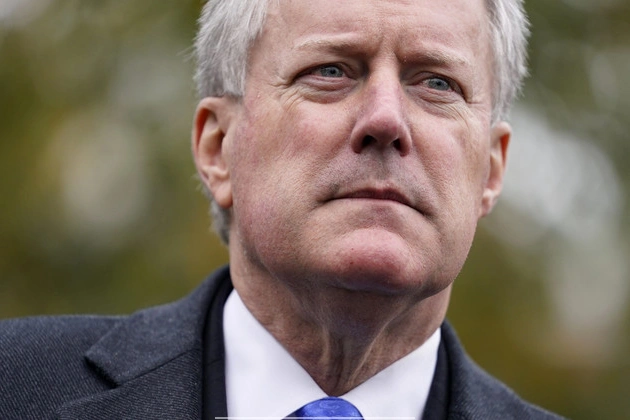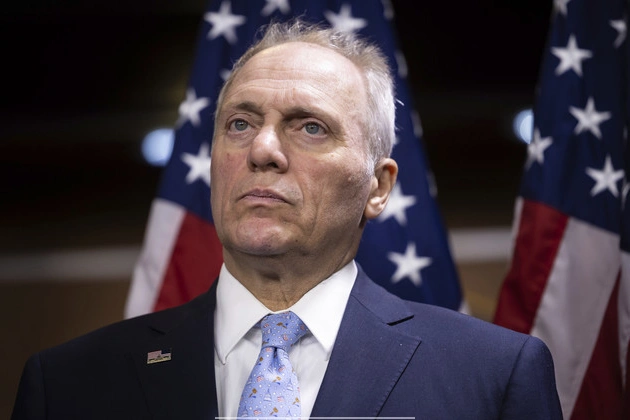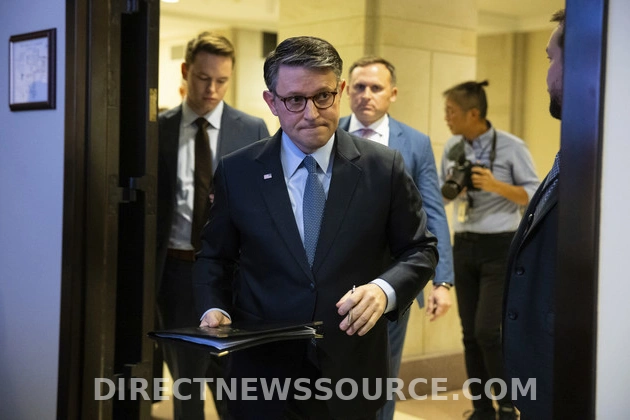
Republican Speaker Mike Johnson is confronting a challenging situation as the year comes to a close, hinting at the difficult road ahead for the GOP.
The GOP leadership is now contemplating an alternative plan to avoid a shutdown before the looming deadline on Friday. The original spending proposal, criticized by conservatives, Elon Musk, Donald Trump, and JD Vance, included additional provisions such as $100 billion in disaster relief and an extension of the farm bill for a year. Trump and Vance, while expressing discontent with the current bill in a detailed statement, surprised legislators by urging Congress to address the debt ceiling immediately and implying the possibility of a shutdown.
Moreover, a staunch opponent has declared intentions to challenge Johnson for the speakership next year, citing financial concerns, while others remain undecided. Several conservatives are escalating their demands for significant spending cuts to offset ambitious policy initiatives on immigration, energy, and taxes planned for the following year.
In principle, most Republicans endorse the idea of spending cuts, but the quest for trillions in savings could impede the GOP’s agenda for the initial 100 days of the Trump administration.
All indications point to Johnson facing a daunting balancing act in the upcoming year. He requires overwhelming GOP backing for both his speakership and the priorities of President-elect Donald Trump, necessitating the delicate task of keeping a diverse conference content. Meanwhile, Trump’s unpredictability poses potential disruptions to the plans, mandating Johnson to secure the President’s support to maintain his position.
Representative Thomas Massie of Kentucky, a frequent critic of Johnson, publicly announced his decision to vote against Johnson on January 3. Other Republicans, previously in support, are now wavering, despite Trump’s endorsement of Johnson just a month ago.
“I’ll vote for somebody else,” Massie stated. “I’ve got a few in mind. I’m not going to say yet.”
Members of the House Freedom Caucus are already proposing alternatives to Johnson. Representative Paul Gosar of Arizona, who previously expressed support for Johnson, indicated hesitance in backing him. Representative Andy Biggs, also from Arizona, initially committed to supporting Johnson but is now undecided.
“Let’s look at the way this has been handled, it’s been horrible,” remarked Biggs.
Trump and his incoming vice president issued a statement demanding action on the debt ceiling and hinting at a potential shutdown. Elon Musk publicly criticized the spending bill and advocated for the removal of any supporters during the next election. In response to mounting opposition, Johnson is contemplating withdrawing the plan and passing a temporary “clean” bill into the next year.
“If Democrats threaten to shut down the government unless we give them everything they want, then CALL THEIR BLUFF,” wrote Trump and Vance in a statement.
While less urgent, the divisions foreshadow challenges for the upcoming year. An existing Republican deadlock persists on fundamental strategy decisions, particularly whether to split policy priorities into two packages or combine them all into one.
Chairman Jason Smith of the Ways and Means Committee, a key tax legislator, advocates for a comprehensive package encompassing all priorities. He leverages conservatives’ latest demand for spending offsets to bolster his stance.
“The latest statement underscores the complexity of navigating the situation, which is why a unified package would facilitate broad support,” stated Smith.
However, Johnson faces personal risks. Some of his staunchest critics advocate for a two-track approach and pose a significant threat to his speakership. These detractors are already disgruntled over the protracted funding dispute.
Conservatives, particularly within the House Freedom Caucus, insist on offsetting tax revisions with spending cuts. Representative Chip Roy of Texas, for instance, emphasized the need for spending reductions to fund tax cuts. Some colleagues share this sentiment.
“I honestly don’t see the feasibility of implementing tax cuts without proper financing,” commented Massie.
Additionally, a coalition of conservative lawmakers released a letter endorsing a two-step spending strategy, emphasizing the importance of offsets for the initial border and energy bill, along with further cuts to reduce the deficit.
While some tax legislators like Representative Lloyd Smucker of Pennsylvania support this approach, others caution against jeopardizing key legislative priorities by prioritizing sweeping spending reductions over essential tax policies.
“We need to strike a balance and ensure effective execution of both. Delaying beneficial tax policies due to an insistence on immediate spending cuts might hinder significant economic growth,” remarked Representative Nathaniel Moran of Texas.






